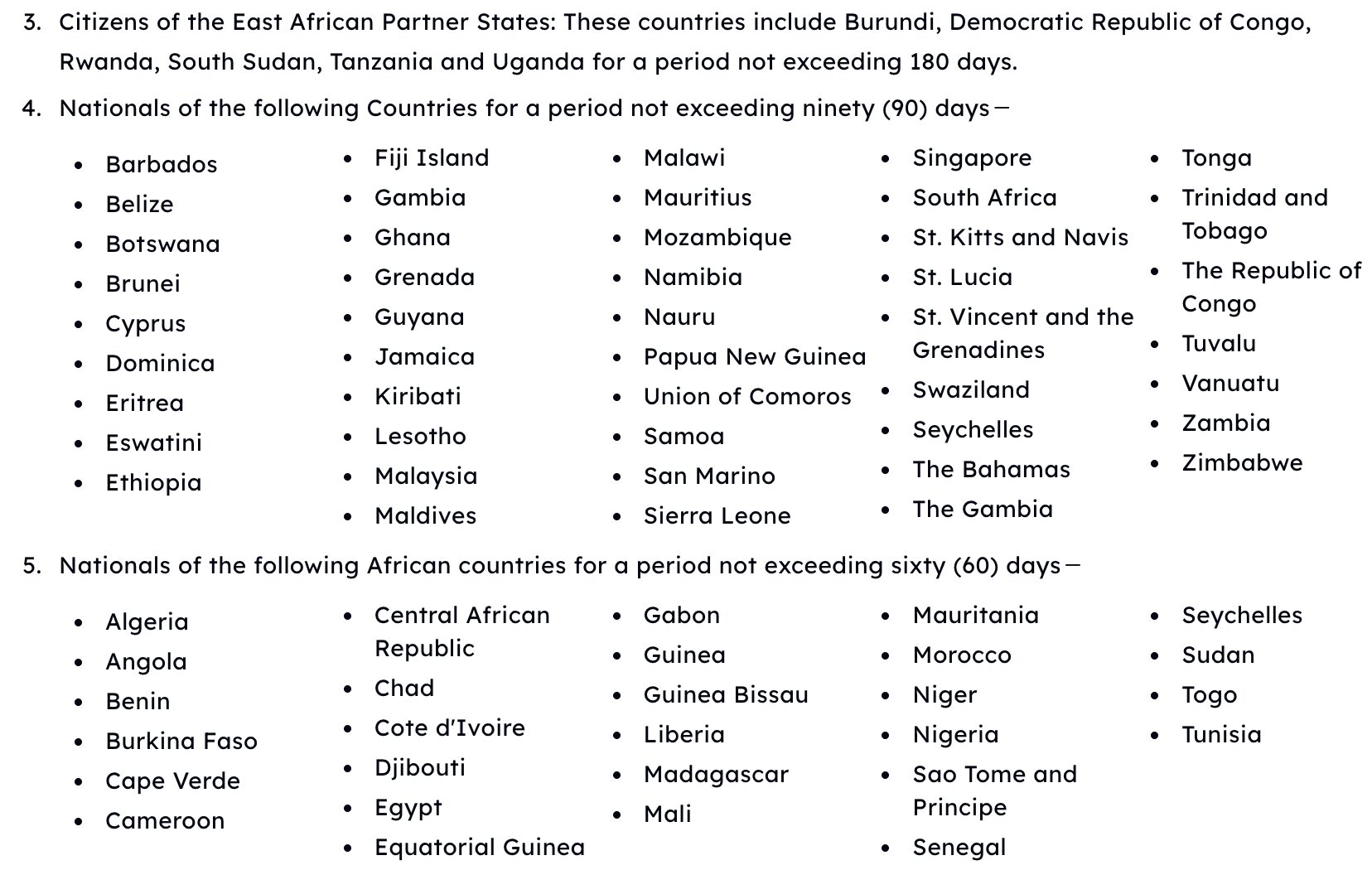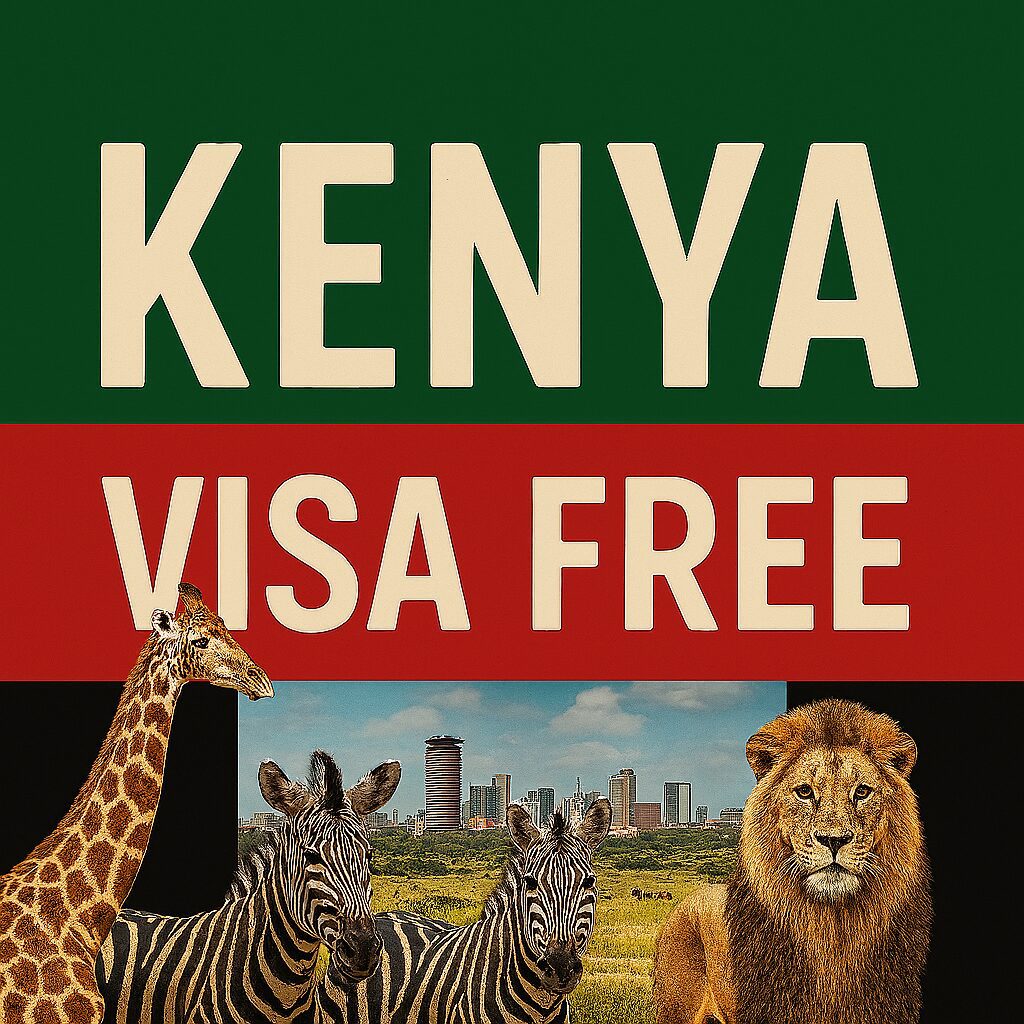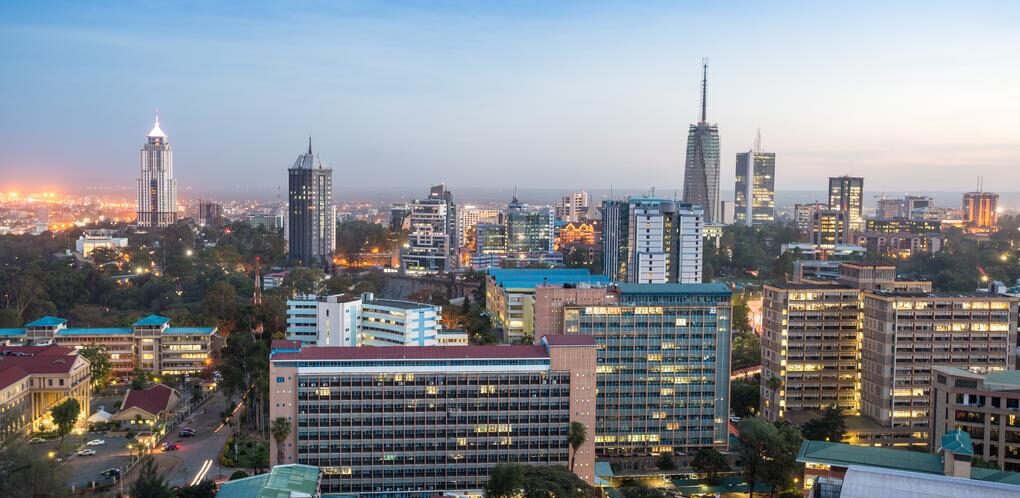Kenya Lifts Visa Requirement for most African Countries and the Caribbean — But Not Haiti
July 13, 2025 | Jamaica Live News Desk
In a bold move toward Pan-African unity and inter-regional mobility, the Government of Kenya has officially scrapped visa requirements for almost all African countries and most Caribbean nations. Under this new policy, travelers from the approved regions will no longer need to apply for an Electronic Travel Authorization (ETA), fill out paperwork, or pay visa fees. They can simply show up. “Karibu!” — Swahili for “Welcome” — the Kenyan government proudly declared. This policy applies to tourists and business travelers and permits stays of up to 90 days.
But not everyone is welcome.

Haiti, Cuba, Somalia, and Libya are conspicuously excluded from the visa-free list — a decision that has sparked quiet confusion and growing outrage, particularly in the Haitian diaspora and among advocates of Pan-African solidarity.
Why Is Haiti Always the Exception?
For decades, Haiti has paid the price for being the first Black republic to free itself from colonial slavery. Despite its revolutionary legacy, the Caribbean nation has been persistently marginalized on the global stage, often treated as a pariah — even within Black and African spaces. The question arises again: Why is Haiti excluded from yet another move toward Black global unity?

The Kenyan government has yet to offer a clear explanation. Security concerns may be one reason, as similar logic was previously used by other African nations when excluding certain countries from open travel policies. But critics argue that excluding Haiti — a nation of African descent, history, and struggle — flies in the face of the very principles these reforms claim to uphold.
Pan-Africanism or Selective Unity?
Jamaican sociopolitical analyst Dr. Carlene Wallace weighed in:
“You cannot wave the flag of Pan-Africanism and leave out Haiti. It’s a contradiction. Haiti should be at the center of any African-Caribbean diplomatic embrace, not the outskirts.”
Many Jamaicans and wider Caribbean nationals have welcomed Kenya’s open-door policy, and rightly so — the policy removes long-standing barriers to travel, investment, and cultural exchange. But the exclusion of Haiti casts a shadow over what otherwise could have been a groundbreaking moment in Black global cooperation.
Haiti’s Painful History of Exclusion
From being forced to pay reparations to France after its independence, to being sidelined in trade, aid, and now visa access — Haiti has endured repeated rejection. Its people, history, and contribution to global Black liberation are undeniable. And yet, even now, it’s being left out of a policy that was supposed to unite the African world.
The Call for Correction
Jamaica Live joins others in calling on the Government of Kenya to reconsider and publicly explain Haiti’s exclusion. If there are concerns, they should be addressed transparently — not with silent omission. A true Pan-African future cannot be built by picking and choosing who gets to belong.

What Does This Mean for Jamaica — and for Africa?
Kenya’s decision to lift visa requirements for most Caribbean nations and all African countries (with a few exceptions) is more than just a diplomatic gesture — it may be the start of a new chapter in Afro-Caribbean relations and a gateway to broader Pan-African mobility.
✅ For Jamaica and the Caribbean: A Rare Invitation
For countries like Jamaica, the move represents a long-awaited opening in South-South relations. Jamaica has long championed Pan-Africanism, tracing cultural and ideological roots back to Africa — from Rastafari and Marcus Garvey to deep family ties forged through the transatlantic slave trade.
Larry Madowo, an International Correspondent for CNN, proudly announced the significant news in X, sharing that it is now official that Kenya is visa-free for all Africans. This pivotal development marks a historic moment for the continent, as it not only fosters regional unity and strengthens diplomatic ties but also encourages a surge in tourism. Madowo enthusiastically urged people from various African nations to seize this remarkable opportunity to visit Kenya, explore its rich culture, breathtaking landscapes, and vibrant wildlife, and contribute to a flourishing local economy that welcomes and celebrates visitors from near and far.
This policy now gives Jamaican citizens direct access to the African continent without the bureaucratic red tape. It could foster:
- Tourism and cultural exchange
- Trade and small business opportunities
- Academic and diplomatic partnerships
- Diaspora reconnection programs
Jamaican universities, creatives, and entrepreneurs may now find a more receptive base for collaboration in Kenya and potentially other African states inspired by this move.

🌍 For Africa: A Step Toward Free Movement?
Kenya’s decision also aligns with the African Union’s (AU) long-held dream of continental free movement — similar to the European Union’s Schengen Zone. While the African Continental Free Trade Area (AfCFTA) is underway, freedom of movement has lagged behind.
If other African nations follow Kenya’s lead:
- We could see a domino effect, with more countries easing or eliminating visa barriers.
- It would accelerate trade, labor mobility, and integration across the continent.
- It would also send a powerful message to the world: Africa is ready to embrace itself — and its diaspora.
Already, Rwanda, Ghana, and Seychelles have implemented similar visa-free or visa-on-arrival policies, and this Kenyan initiative may finally push others to act.
